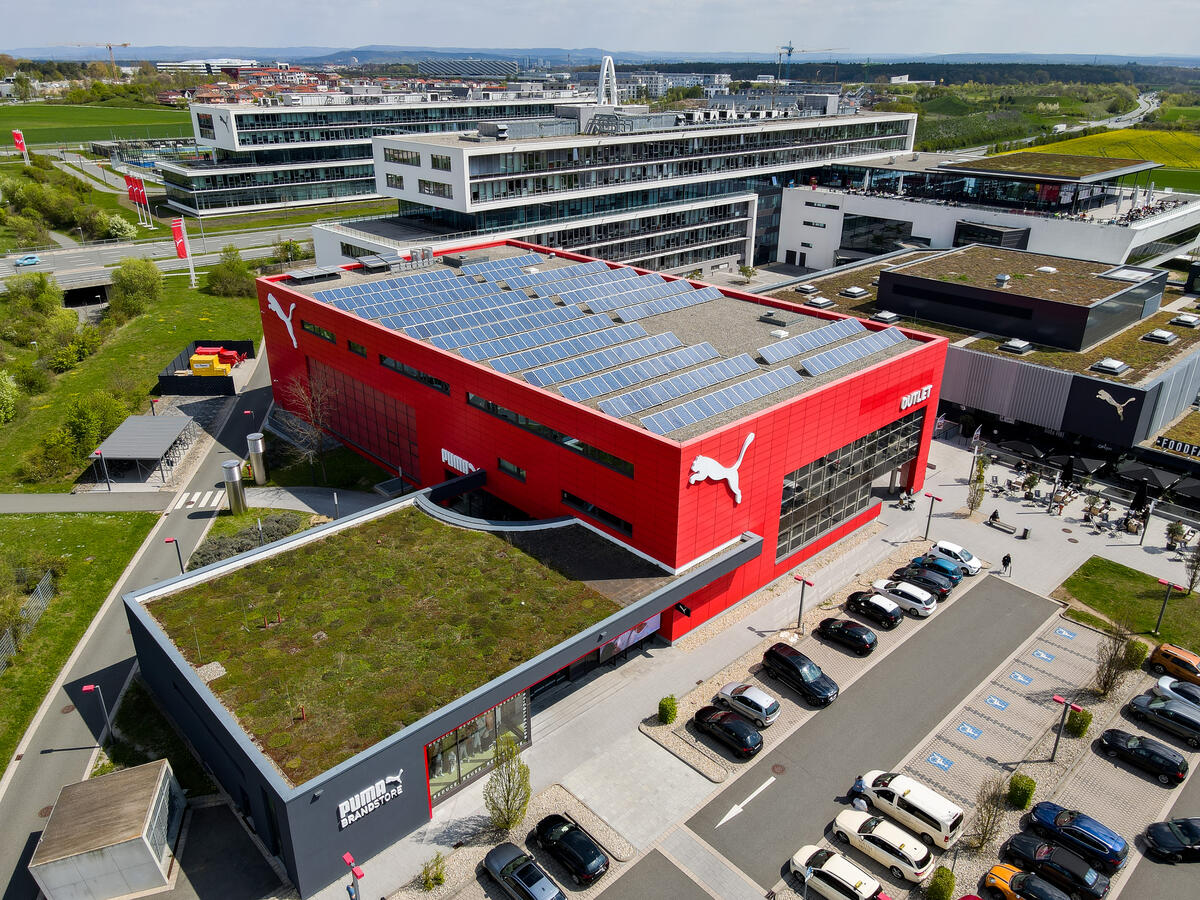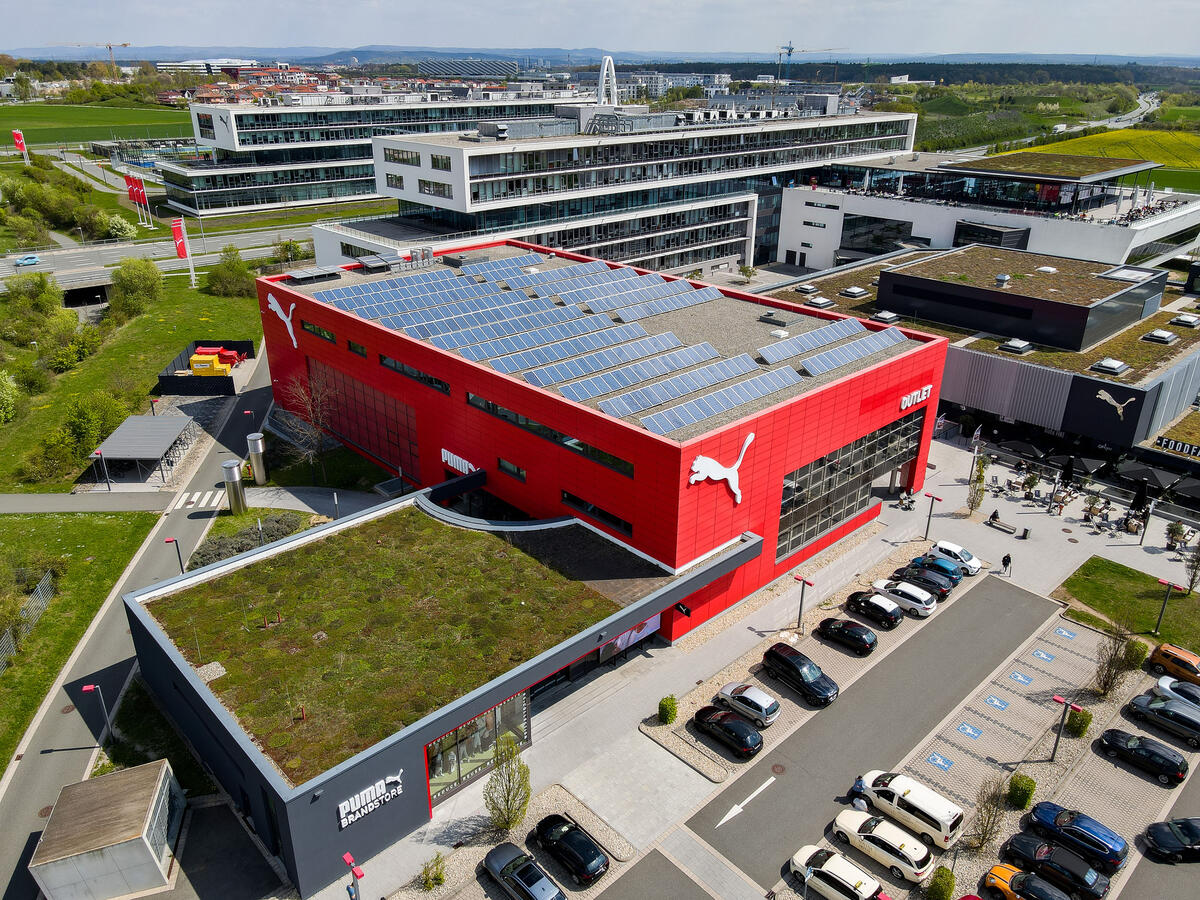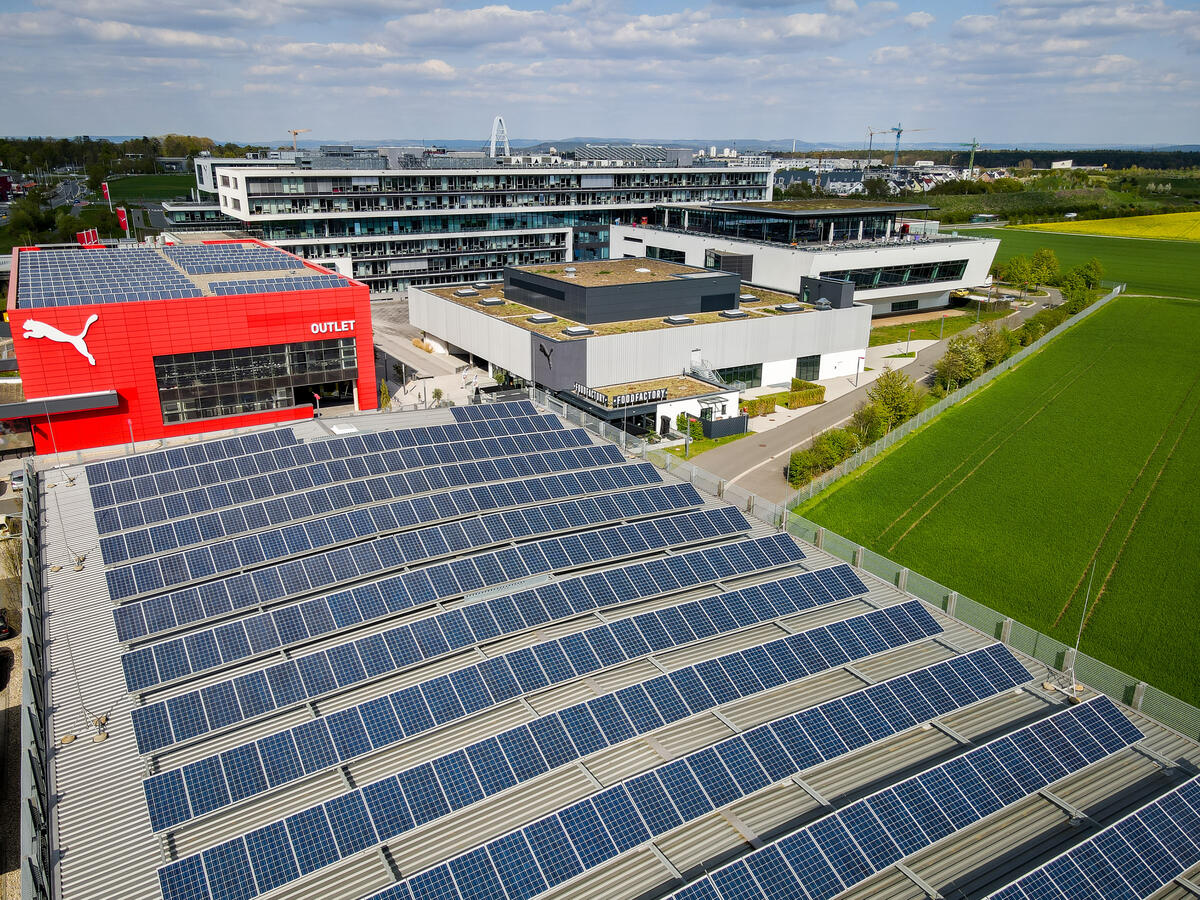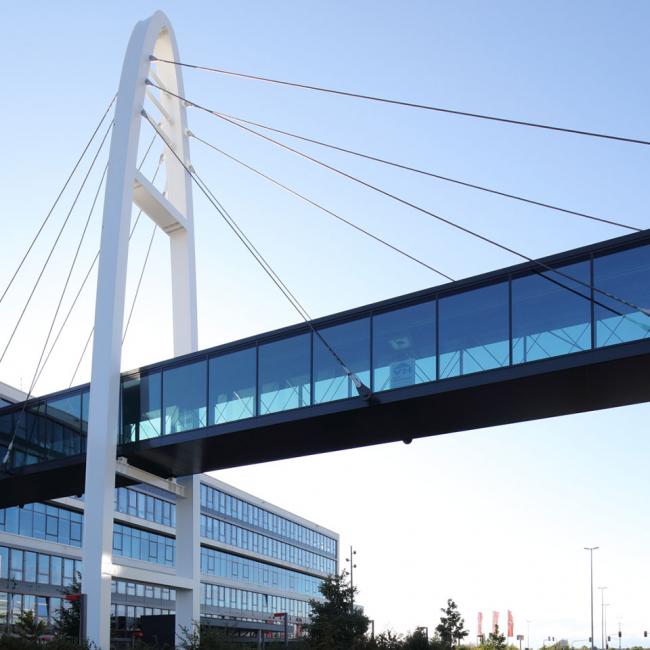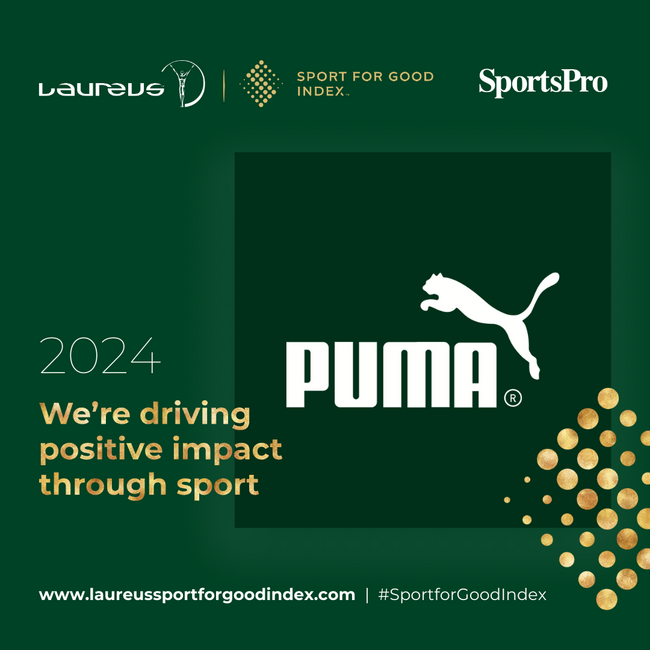10FOR25

OUR TARGETS
10FOR25
OUR FOREVER. BETTER. STRATEGY IS BASED ON OUR 10FOR25 TARGETS
Established in 2019, our 10FOR25 targets are 10 areas where we’re working on improving our performance by 2025. Within each of these areas, we’ve identified at least three targets to help keep us on track.
Embedding human rights and compliance to ILO Core Conventions in all our operations and suppliers. Making a positive impact on communities where PUMA is present.
Status: Achieved.
2019
BASELINE
- FLA Re-Accreditation of PUMAs compliance programme achieved
- 475 audits conducted in 418 Factories
- 94% of audits with passing grade
- Worker complaints hotline in operation. 61 complaints received and resolved.
- 21.000 hours of community engagement
2024
PERFORMANCE
- 290,226 factory workers and 6,446 PUMA employees trained since 2021
- Tier 1 subcontractors mapped
Tier 2 mapping completed (since 2022) - 43,913 hours of global community engagement
2025
TARGET
- Train 100,000 direct and indirect staff members on women's empowerment
- Map subcontractors and T2 suppliers for Human Rights risks
- 25,000 hours of global community engagement per year
Taking a leading role in Climate Action within our industry and implementing our existing science-based greenhouse gas emission reduction target.
Status: Achieved.
2019
BASELINE
- Science Based Carbon Emissions Target set, approved and published
- 35% absolute emission reduction for PUMA's own entities between 2017 and 2030
- 60% relative emission reduction for PUMA supply chain between 2017 and 2030
- 75% of PUMAs own electricity use from renewable sources (through renewable energy tariffs or RECs certificates)
- Core suppliers in Bangladesh and Vietnam engaged in energy efficiency programs
- Leading role in UN convened Fashion Charter on Climate Action
- Joined Fashion Pacts climate commitment
2024
PERFORMANCE
- SBTi approved our new 1.5°C aligned target for absolute GHG emission reduction: Scope 1 and 2 by 90%, Scope 3 by 33% in 2030. Our first SBT set in 2019 was achieved in 2023
- 100% renewable electricity used for PUMA entities (including RECs purchase)
- 26% for Tier 1 (finished goods)
27% for Tier 2 (materials) (including RECs purchase)
2025
TARGET
- Align PUMA's Climate target with 1.5 degrees global warming scenario
- 100% renewable electricity for PUMA entities
- 25% renewable energy for core suppliers
Moving toward a more circular business model.
Status: Achieved.
2019
BASELINE
- Recycled polyester target set (75%)
- Recycled cotton research started
- Piloted product take back scheme in Hong Kong
- Waste KPIs collected from core suppliers
2024
PERFORMANCE
- Take-back schemes established in Australia, China, Germany, France, India, Switzerland and USA
- 87.8% reduction of waste to landfill per footwear pair
65.8% reduction of waste to landfill per apparel piece - Recycled cotton used at scale
Recycled rubber and reconstituted leather used in selected collections
2025
TARGET
- Build, setup or join product takeback schemes in major markets
- Reduce production waste to landfill by 50%
- Develop recycled material options for leather, rubber, cotton and polyurethane
Ensuring 90% of our products contain more recycled and/or certified materials and components.
Status:
Target 1: On track.
Target 2: Achieved.
Target 3: On track.
2019
BASELINE
- 82% of cotton used originating from more sustainable sources
- 98% of polyester used in apparel and accessories originating from certified sources (bluesign and Oeko-Tex)
- 98% of leather used originating from Leather Working Group medal rated tanneries
2024
PERFORMANCE
- 99.7% cotton
86% polyester
99.5% leather
100% down - 75% recycled polyester used for apparel, accessories and footwear
- 88.5% apparel volume
58.3% accessories volume
95.7% footwear volume
2025
TARGET
- 90% of PUMA Apparel and Accessories products contain >50% recycled or certified material
- 90% of our Footwear contains at least one component made of recycled or certified material
- Increase use of recycled polyester (Apparel and Accessories) to 75% by 2025
Zero discharge of all hazardous chemicals from our supply chain.
Status:
Target 1: Achieved.
Target 2: Achieved.
Target 3: On track.
2019
BASELINE
- No intentional use of priority hazardous chemicals
- Polyfluorinated compounds (PFC) phased out
- Restricted Substance List (RSL) failure rate at 1.1%
- Volatile Organic Compound (VOC) index for footwear 15.6g / pair
2024
PERFORMANCE
- No product recall from the market
- 6,918 tests with RSL compliance rate at 98.9%
- VOC index at 11.5 g/pair
2025
TARGET
- Ensure 100% of PUMA products are safe to use
- Maintain RSL compliance rate above 90% (Target changed since 2020)
- Reduce organic solvent usage to under 10 gr/pair
Joining forces on reducing plastic pollution.
Status: Achieved.
2019
BASELINE
- Joined Microfiber Consortium
- Eliminated plastic bags from full prize stores
- Moved remaining plastic bags to 80% recycled content
- Started using recycled polyester again for selected collections
2024
PERFORMANCE
- As of 1 January 2023, plastic bags are no longer used in PUMA’s owned and operated stores
- Signed 2030 experiment of microfiber consortium, 12 shedding tests conducted
- RE:SUEDE experiment as a test for biodegradability completed and results publicly shared
2025
TARGET
- Eliminate plastic bags from PUMA Stores
- Support scientific research on microfibers
- Research biodegradable plastics options for products
Meet industry good practice on wastewater quality and air emissions to 90% for PUMA core suppliers.
Status: Wastewater on track, air emissions pending.
2019
BASELINE
- ZDHC wastewater guideline tests at 70 suppliers with wet processing
- 16 out of 17 wastewater parameters with compliance rates over 90%
- Industry Standard on Air Emissions still in development
2024
PERFORMANCE
- Conventional parameters: 99%
Restricted chemicals: 99%
Heavy metals: 99% - With the delayed publication of the ZDHC Air Emission Guidelines V1.0 in August 2024, we extended these targets to 2030
- Textile: -8.3% per ton
Leather: +8.6% per square meter
Apparel: +18.3% per piece
Footwear: -41.2% per pair
2025
TARGET
- 90% compliance with ZDHC Wastewater Guidelines
- 90% compliance with ZDHC Air Emissions Guidelines
- 15% water reduction per pair or piece based on 2020 baseline
Celebrating biodiversity by using certified and traceable materials.
Status:
Target 1: Achieved.
Target 2: In progress.
Target 3: Achieved.
2019
BASELINE
- 82% cotton, 98% leather and 100% down feathers from certified sources
- 100% paper and cardboard in product packaging from certified or recycled sources
2024
PERFORMANCE
- Sponsored a Biodiversity Landscape Analysis Report with Textile Exchange and Fashion Pact
- 99.7% cotton
99.5% leather
72% viscose - Phased out the usage of kangaroo leather during 2023
No exotic skins or hides in use
2025
TARGET
- Support setting up a biodiversity SBT
- Procure 100% cotton, leather, and viscose from certified sources
- Zero use of exotic skins or hides
Reducing injury rates significantly to achieve zero fatal accidents and injury rates below industry average.
Status:
Target 1: In progress.
Target 2: Achieved.
Target 3: Achieved.
2019
BASELINE
- Zero Fatal Accidents at PUMA and suppliers achieved
- Injury Rate for PUMA 0.4
- Injury Rate for Core Suppliers 0.5
- Member of Bangladesh Accord
2024
PERFORMANCE
- Zero fatal accidents at PUMA
One work-related fatality (heart attack) at a factory - 0.44 at PUMA
0.2 injury rate at PUMA suppliers - ACCORD Bangladesh: Progress rate 86% Signed ACCORD Pakistan Building safety assessments in 45 factories in Indonesia, India, Bangladesh and Pakistan
2025
TARGET
- Zero fatal accidents (PUMA and suppliers)
- Reduce accident rate to 0.5 (PUMA and suppliers)
- Building safety policy operational in all high-risk countries
Mapping and improving wage practices in major sourcing countries.
Status:
Target 1: Achieved.
Target 2: On track.
Target 3: Achieved.
2019
BASELINE
- Full minium wage compliance of our suppliers verified during our normal compliance audit routine
- Average wage data (in comparison to minium wage) published in Annual Reports
- Fair Wage analysis completed in Bangladesh and Cambodia with Fair Wage Network
2024
PERFORMANCE
- Five out of five assessments completed (Bangladesh, Cambodia, Indonesia, Vietnam, China)
- 91% core Tier 1 factories have elected worker representatives
- 100% Core Tier 1 & Tier 2 suppliers use digital payment
100% of workers are paid digitally in core factories
2025
TARGET
- Fair-wage assessments for the top five sourcing countries
- Effective and democratically elected worker representatives at all core suppliers
- Ensure bank transfer payments for all core suppliers
Introducing Vision 2030
Setting the bar higher
With Vision 2030 we have elevated and evolved our current 10FOR25 sustainability goals to achieve bigger, better targets in Climate, Human Rights and Circularity by 2030.
Setting the bar higher to stay true to our responsibility to be FOREVER. BETTER. throughout our business, for people and the planet.
Because there's only one FOREVER. Let's make it BETTER.
Vision 2030 Targets
SCOPE 1 & 2 CLIMATE-RELATED TARGETS
(PUMA OWN OPERATIONS)
2030 SCIENCE BASED TARGET (SBT):
90% Absolute Green House Gas (TC02E) reduction from 2017 baseline (market based)
SCOPE 1 (DIRECT EMISSIONS)
All vehicles in PUMA car fleet moved to zero or low emission vehicles where charging infrastructure permits (>60%)
No corporate airplane unless biofuels are used
Move remaining natural gas heating to biogas, hydrogen or electric heating (>50%)
SCOPE 2 (INDIRECT EMISSIONS)
Continue to use 100% renewable electricity
Use over 2 MWp of own solar capacity
Use 75% renewable content district heating at PUMA Headquarters
SCOPE 3 EMISSIONS
(PUMA SUPPLY CHAIN)
2030 SCIENCE BASED TARGET (SBT):
33% Absolute Green House Gas (TCO2E) reduction from 2017 baseline
Reach 40% renewable energy use (for core factories)
Reduce GHG emissions (scope 1 & 2) by 40% for core factories
No coal-fired boilers for core factories
LESS CARBON INTENSIVE MATERIAL
- 100% Recycled Polyester Fabric
- 30% Fibre-to-Fibre recycled polyester fabric for Apparel
- 20% Recycled Cotton fabric for Apparel
- Research and invest into next-generation material options with a focus on Footwear
BIODIVERSITY & WATER
PUMA sets Science Based Targets (SBT) for Nature
50% recycled industrial wastewater at core factories
Deforestation-free bovine leather
95% Manufacturing Restricted Substances List (MRSL) compliance at core factories
90% air emission compliance at core factories
PRODUCT DESIGN
- Establish circular design criteria focusing on recyclability, durability, and repairability based on industry standards.
- Subsequently, define specific targets for products adhering to these criteria.
Recycled material usage:
- 100% Recycled Polyester Fabric
- 30% Fibre to Fibre Recycled Polyester Fabric for Apparel
- 20% Recycled Cotton Fabric for Apparel
- Research and invest into next-generation material options with a focus on Footwear.
NEW BUSINESS MODELS
Provide access for consumers to re-sell/repair business models in selected markets
Increase consumer communication to raise awareness about circularity
WASTE REDUCTION
Pre-Consumer Waste: Partner with industry associations, our suppliers and selected governments in sourcing countries to establish ways of recycling material waste
Post-Consumer Waste: Collaborate with industry peers on sorting and recycling solutions taking into consideration Extended Producer Responsibility schemes (EPR).
PRIMARY PACKAGING
100% of unavoidable plastic packaging made from recycled content
Eliminate plastic packaging where technically and economically feasible
FOR PUMA EMPLOYEES
LIVING WAGE
All PUMA employees who earn their living income with PUMA are paid a living wage
DIVERSITY AND INCLUSION
No less than 45% of men and women in leadership roles (Team head & above)
- Foster diversity & inclusion on all aspects including culture, ethnicity and sexual orientation measured with a leading diversity & inclusion score based on employee opinion surveys (top quartile of industry)
EMPLOYEE ENGAGEMENT AND DEVELOPMENT
Keep a leading employee engagement score based on employee opinion surveys (top quartile of industry)
8-10 training hours per fixed term employee (FTE)
GENDER EQUALITY
Close the gender pay gap in all countries (externally verified)
HEALTH AND SAFETY
Zero fatal accidents
Lost Time Injury Rate (LTIR) below 2 (less than two injuries for 1,000,000 hours worked)
COMMUNITY ENGAGEMENT
500, 000 hours of community engagement donated until 2030 (2020 baseline)
FOR SUPPLY CHAIN EMPLOYEES
LABOR CONDITIONS
- 400,000 workers trained on Human Rights (Forced labor, Freedom of Association, H&S)
WORKERS WAGES
- Progressive salary increase towards living wage at core factories
- No recruitment fees for foreign migrant workers
GENDER EQUITY
- Zero gender pay gap at core factories
- 100% core Tier 1 CEOs Sign the UN Women Empowerment Principles
Sustainability News
Teaser
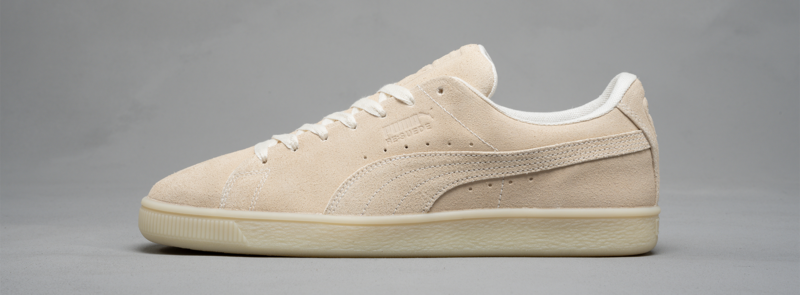
Corporate Sustainability
Explore PUMA's Corporate Sustainability Reports, Codes, Policies, Handbooks and more.
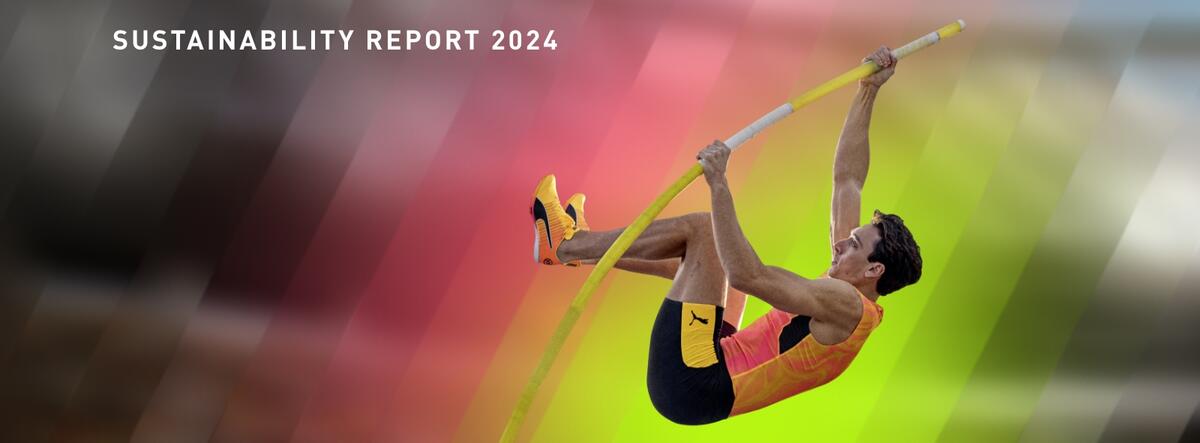
Sustainability Report
We provide annual sustainability reports within our annual reports. Explore them here.


